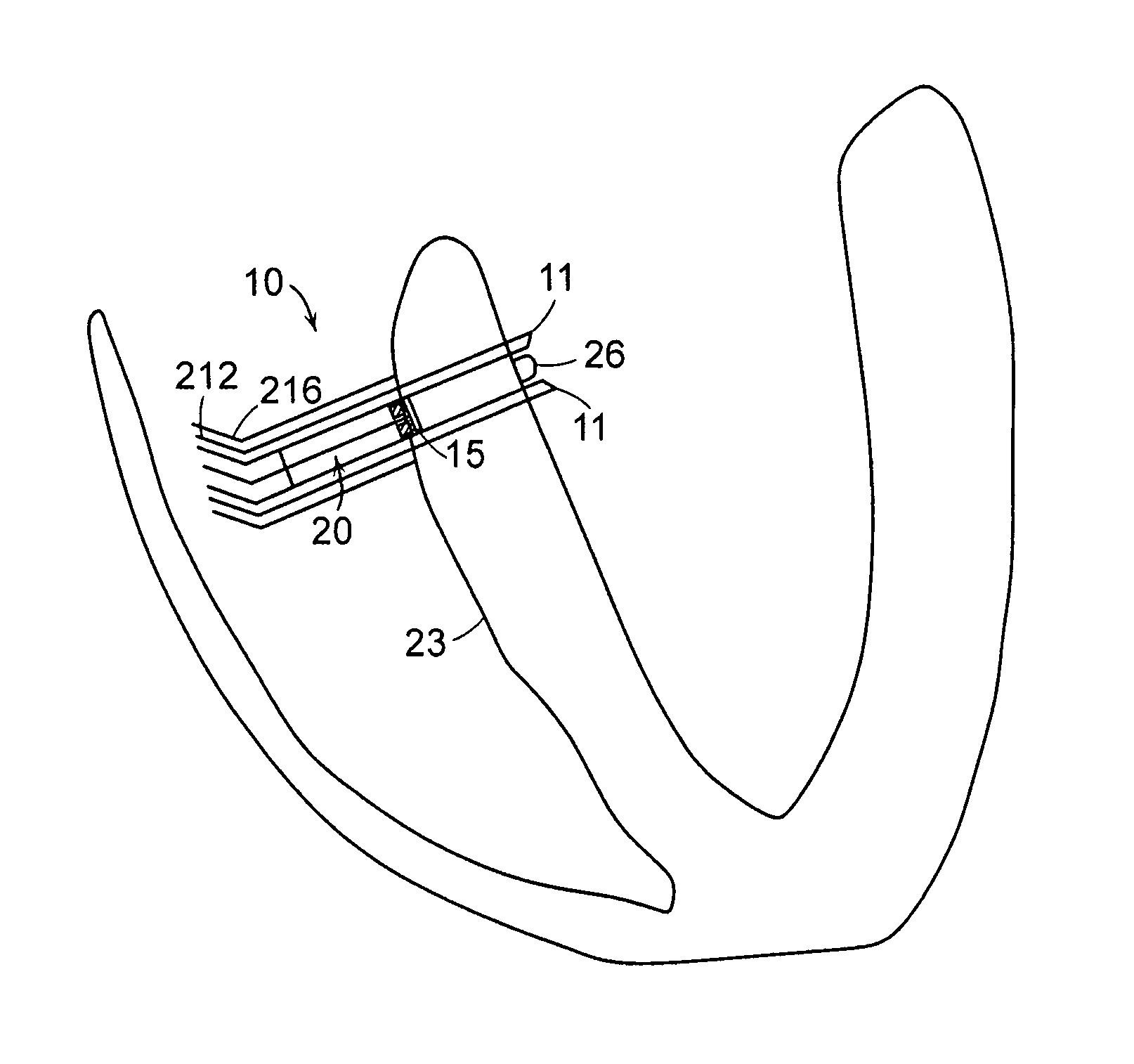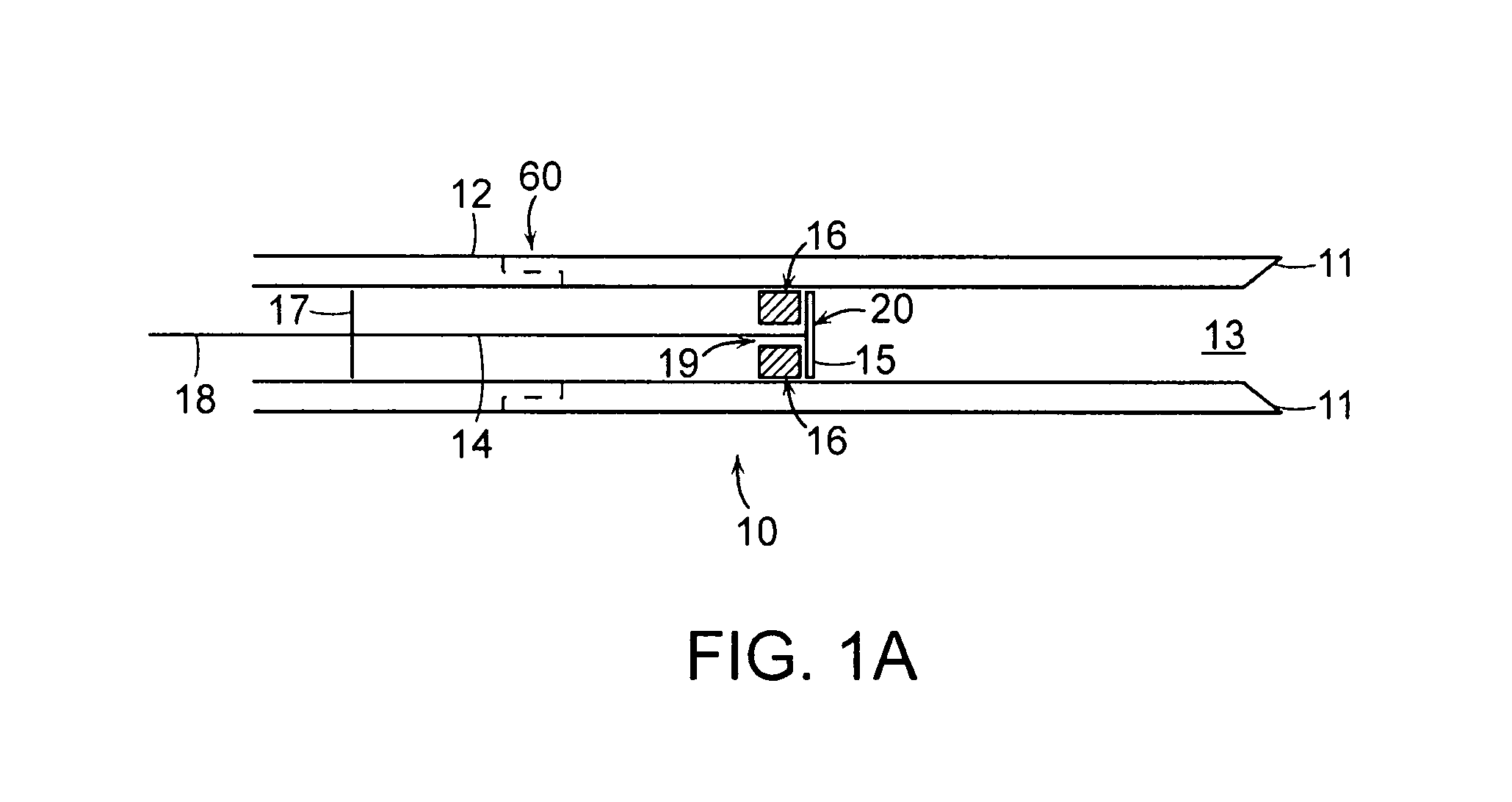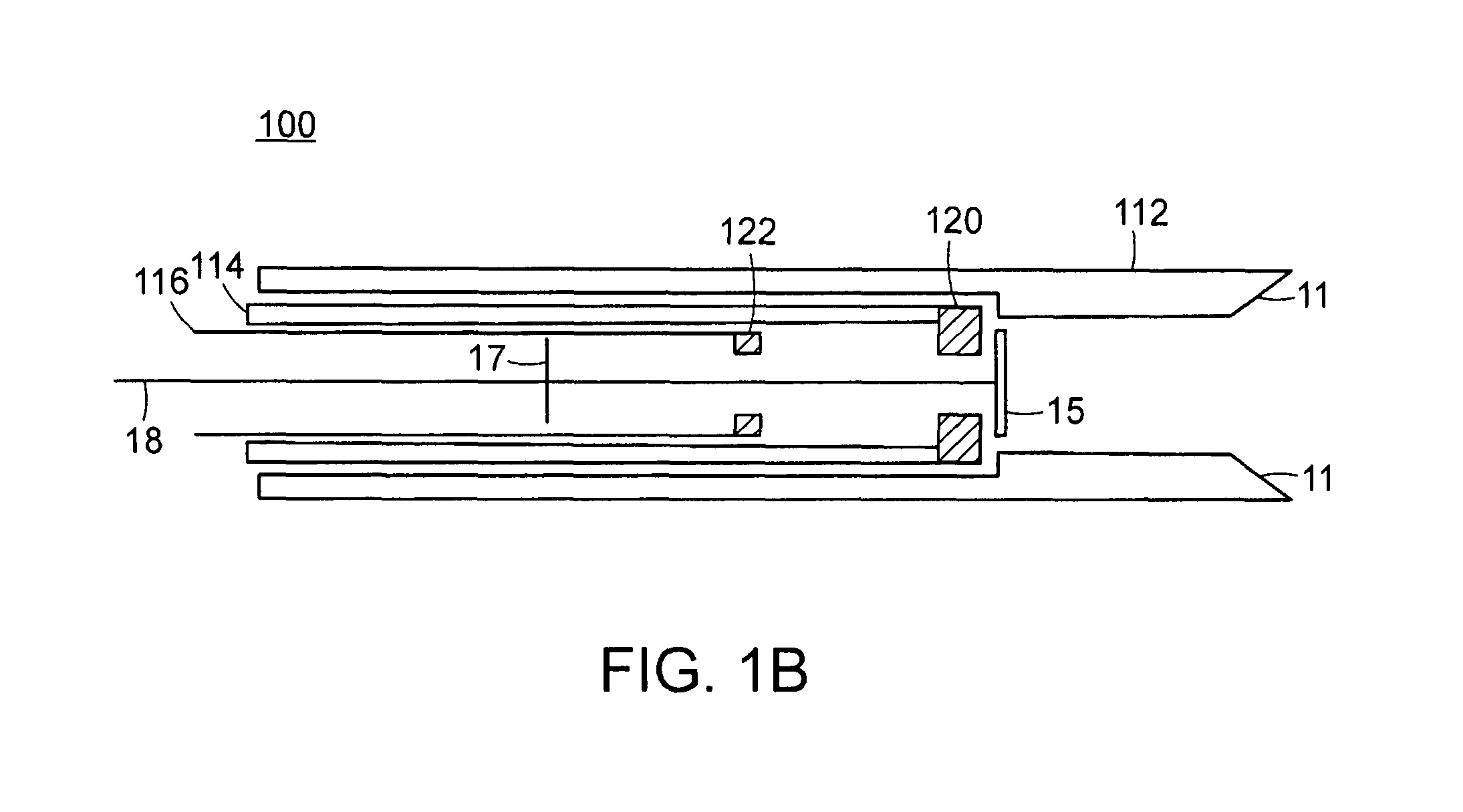Devices and methods for tissue transplant and regeneration
a tissue and tissue technology, applied in the field of tissue transplant and regeneration, can solve the problems of reducing affecting the survival rate of patients, and affecting the quality of life of patients, so as to increase the number of resident stem cells and increase the cellular growth
- Summary
- Abstract
- Description
- Claims
- Application Information
AI Technical Summary
Benefits of technology
Problems solved by technology
Method used
Image
Examples
Embodiment Construction
[0056]The present invention relates to devices and methods for removing a tissue sample from a mammalian organ and implanting the tissue sample into another region of the same organ or another organ of the same individual. The devices and methods can be used for cardiomyoplasty, i.e., for use with a human myocardium, and can also be used with other mammalian organs, e.g., the liver, the bladder, the kidneys and the brain. The invention is of particular significance with respect to the heart and brain in which organ or tissue transplant is not available or difficult, or where current methods of treatment are not adequate.
[0057]As previously mentioned, a variety of cells have been proposed for cellular cardiomyoplasty, e.g., adult cultured cardiac and skeletal myocytes, mesenchymal and / or embryonic stem cells, progenitors cells from autologous bone marrow and / or peripheral blood.
[0058]However, typically, cardiac stem cells implanted in an infarct zone may not form fully mature cardiom...
PUM
 Login to View More
Login to View More Abstract
Description
Claims
Application Information
 Login to View More
Login to View More - R&D
- Intellectual Property
- Life Sciences
- Materials
- Tech Scout
- Unparalleled Data Quality
- Higher Quality Content
- 60% Fewer Hallucinations
Browse by: Latest US Patents, China's latest patents, Technical Efficacy Thesaurus, Application Domain, Technology Topic, Popular Technical Reports.
© 2025 PatSnap. All rights reserved.Legal|Privacy policy|Modern Slavery Act Transparency Statement|Sitemap|About US| Contact US: help@patsnap.com



